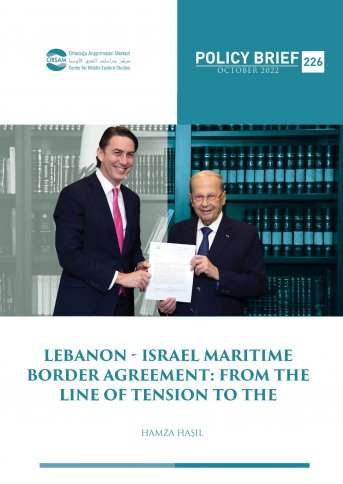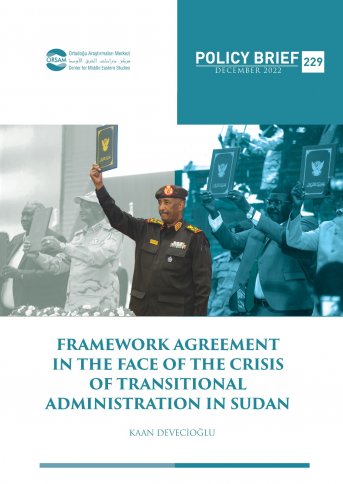
Lebanon – Israel Maritime Border Agreement: From the Line of Tension to the Regional Stability
The Eastern Mediterranean, an extremely critical crossroads in terms of geopolitics, has been transformed into a new field of struggle with the discovery of hydrocarbon deposits. The disputes between the countries neighboring the Eastern Mediterranean regarding their maritime borders are at the center of this power struggle. The inadequacy of international maritime law to provide solutions to the current crises related to maritime borders can lead to violations of rights, and conflicts occur between countries as a result of these violations. The maritime border dispute between Lebanon and Israel is also closely related to the inadequacy of the legal infrastructure related to maritime borders or the arbitrary interpretation of maritime law. In fact, the maximalist demands of both sides regarding the maritime border in order to protect their national interests had increased the risk of a hot conflict even at the time of the negotiations. Nevertheless, despite the fact that the risk of a hot conflict seems to have disappeared with the agreement signed through the mediation of the USA, it should not be ignored that some variables in the equation may pave the way to new crises at any time. In other words, the fragmented structure in Lebanon, instability in the country, the occasional increase in Hezbollah's threatening discourse and unpredictable behaviors, the foreign actors’ efforts to safeguard their interests in the region, and Israel’s maximalist demands in every field show that, although an agreement has been officially signed between the Parties, the potential threats that could trigger new crises between two countries have not been completely eliminated.








